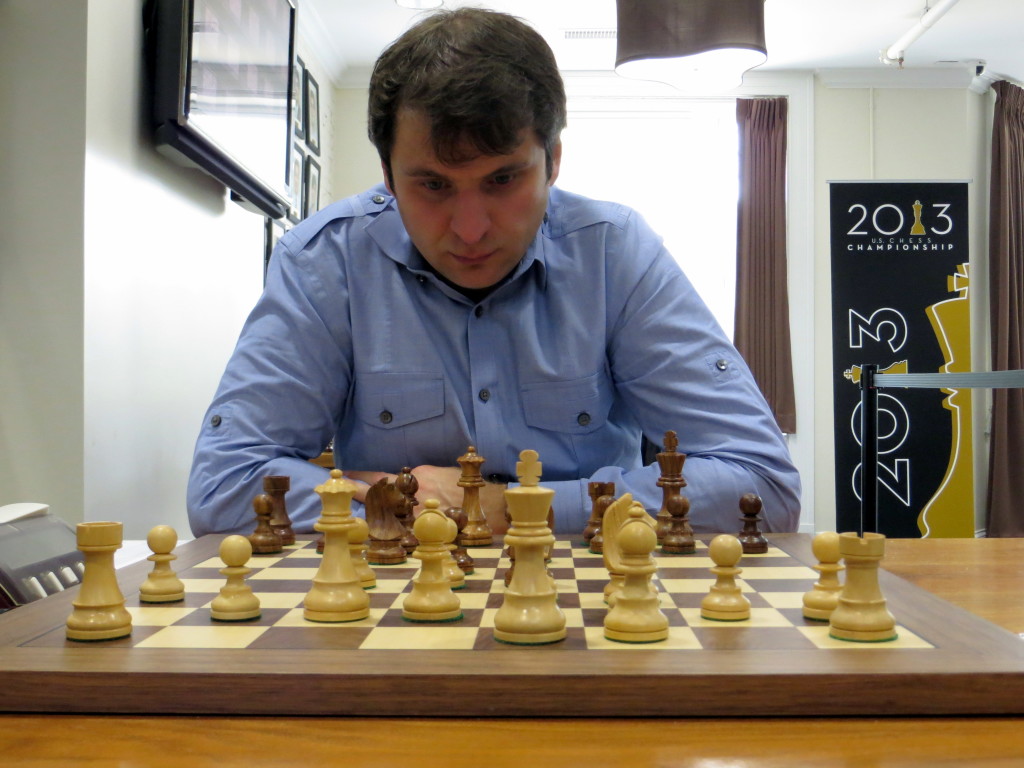
Grandmaster Yury Shulman is one of the strongest players in the USA and in the world. He’s the top player in Illinois and is currently ranked 26th out of all players in America. Hailing from Belarus, he began playing chess when he was six years old. He achieved the Grandmaster title 20 years ago and has since experienced much success, having won a litany of prestigious tournaments, including the World Open and the US Chess Championship. He is also the founder of an organization called Chess Without Borders; please click here to learn more! We asked Mr. Shulman about his thoughts on the benefits of chess, why chess is meaningful to him, and much more:
What do you have to say about the benefits of chess in education and in life?
I have been playing for a long time and teaching chess for quite a while. Chess gives children different ways to improve, such as in critical thinking, the ability to focus, and concentration. The difference between a Grandmaster and a regular player is that the Grandmaster can easily discard wrong ideas and search for another one—along these lines, chess can teach one how not to get stuck. Additionally, kids develop language abilities when they play chess. Playing in tournaments is also helpful for developing emotional intelligence. If you learn to react to a loss you can communicate on friendly terms with your opponent.
What are your thoughts on chess being incorporated in the curriculum in schools?
I am sure chess is a very helpful activity for development of kids. It can be a type of class or it could be just a simple after school activity. Though it would be great if chess were a part of the curriculum, the most important thing is that the kids who want to play chess are able to play chess—and that, similarly, the kids who don’t want to play chess are not being forced to do so. The more choices we give to the kids, the better.
Do you think it is important to be physically fit when playing chess?
Of course. Your body has to be fit to listen to you. When you wake up, you should be happy and happy with your body. There’s a famous expression—a happy body has a happy spirit. Some people have to do 6 hours in gym, and others only 20 minutes, but there has to be focus and devotion.
What is one piece of advice you would give to a developing chess player?
Enjoy the process of learning. If you don’t enjoy the process, let it go and just enjoying playing the game; don’t take stress. Find your niche and enjoy it on that level. If you set a goal to improve, then invest your time. In order to improve, you have to invest time, money, focus, and you have to prioritize.
What is the proudest moment in your chess career?
It’s hard to underestimate the US Championship title. The final game was a short draw but the whole tournament was much tougher. To become US Champion was huge. Also, winning the bronze medal in the International Chess Olympiad in 2008 was amazing. I was playing last game and, to clinch the medal, I had to play and beat GM Efimenko; I was able to succeed! The team was happy and all of us were celebrating together. There are a lot of moments that make you happy in chess.
Why is chess meaningful to you?
A lot of times things happen to us without conscious understanding. Chess was subconscious at first; I liked it right away. Chess became a profession, passion— 90% of my life. Chess can transform in your life; it can be 10%, 50%, 100%, then again 10% of your time and involvement. I understand how hard it is to study and how much time people have to invest to become good.
What is your favorite opening?
The French defense, though I have tried lots interesting openings such as the King’s Gambit and the King’s Indian.
Which chess players inspire you?
The World Champions. I was reading a series called “Outstanding GM’s of the World;” some of the books from the series were of World Champions. Those books inspired me at first. That said, I don’t think one player had a profound influence on me.
Who is the strongest opponent you’ve ever played against?
I’ve played Grandmasters Karpov and Korchnoi, though you could say that Grandmaster Hikaru Nakamura is higher rated. Hikaru is by far the strongest player I’ve beaten.
In your free time, what do you like doing besides playing chess?
I like to travel a lot and I like to watch movies about geography and history. I like to go outside for long walks and do more strenuous exercise as well. I also like to watch sports like soccer, hockey, and cricket.
We’d like to thank Yury Shulman for talking to us, and we appreciate his support and recognition of what we’re doing to promote chess. We admire the ways through which Mr. Shulman is promoting chess, and we would like to wish him the best of luck in his future pursuits!